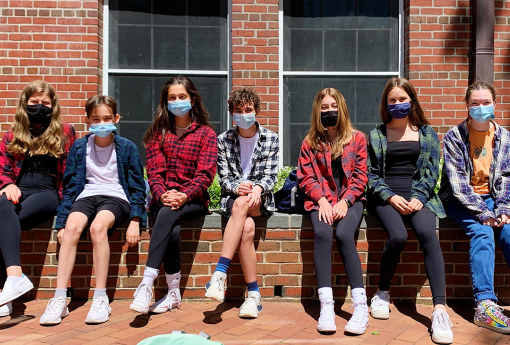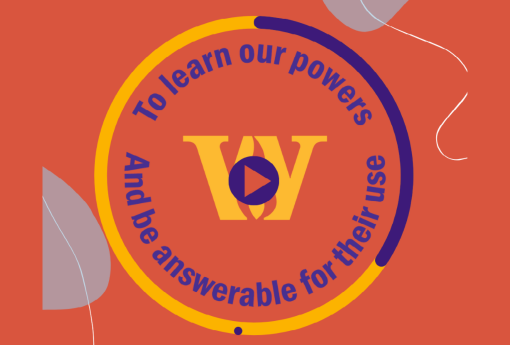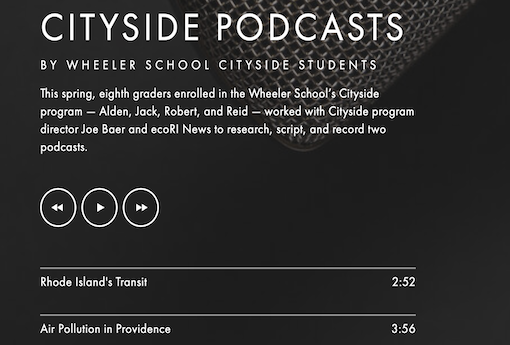
Writers’ Escape
July 21, 2019
The Aerie program takes a student’s passion for learning beyond the classroom. Read how young novelists take advantage of the opportunity to work with professional writers as mentors.
Wheeler prides itself on a demanding writing curriculum. The process of discovering and developing a student’s voice is central to our work in school. Sometimes young writers are so ambitious, so prolific, however, that their work goes well beyond writing assignments from class. Jayden, a Fourth Grader, writes a play, currently being adapted for a podcast on Wheeler School Broadcasting. Tess, a Fifth Grader, devotes two lunchtimes each week to reviewing and editing her book project with her writing mentor, an accomplished author himself. And a Middle School elective for “aspiring novelists” turns into a continuing workshop for serious writers.
Aerie writing coach Bob Koppel suggests that we “hear it from the perspective of one of our novelists, Quinn Kennedy, a Sixth Grader. ‘In the beginning of the school year, five middle-school girls who shared a passion for writing signed up for a class called Aspiring Novelists. Since then, those girls have been developing characters, settings, and plots to put together the pieces of a novel, each completely different, and wonderful! The stories range from a girl who remembers her past lives, a world ruined by the paradise of an endless summer, a young musician who experiences a life-shattering betrayal, to a tale of true and lasting friendship, and my story, about Brooke Ellis, a 12-year-old, fighting a fierce battle waged within herself.’ ”
Bob continues, “What unites these novels is the storyteller transforming day-to-day life into art, abstracting from life to arrive at its true essence and the profound recognition that the material of story is life itself. And at the same time allowing young novelists to value the art of story and the writer’s true potential.”
Bob supplied snippets of the student pieces, all produced outside of class, all destined, hopefully, for a wider readership than the normal classroom model offers. I think that Wheeler may soon need its own in-house publishing department.
From Quinn’s novel RACE: “I leap into action, my legs pumping, my arms banging back and forth, the impact of my feet hitting the ground, vibrating through my entire body again and again. The cool wind blows across my face and lifts my hair into the sky, my lips forming a smile. And suddenly, the world will fade. I forget about why I am here, my destination, the competition, everything bad that I face. I am leaping, speeding like a race car, flying like a falcon, light and wind and spirit itself! I’m no longer disabled Brooke Ellis, the girl who feels like her world is falling apart. I am free.”
This from the novel THE FINAL NOTE by sixth-grader Kelly Young: “Twelve-year-old Izzy Jones’s life is turned upside down when she takes a traumatic fall leaving her confined in a wheelchair. To make matters worse, she gets kicked out of her band just a few weeks before a national band competition because her “friends” are embarrassed to be seen with her. Barely surviving junior high, Izzy is being bullied by eighth graders – who gave her the nickname “Handicap girl.” After the first week of school, Izzy realizes that life is not like music. It is not planned out – from the first note to the last – it has bumps and turns that can catch you off guard. Izzy needs to learn how to improvise each beat, measure, and tune if she wants to make it to the final note.”
The dystopian novel STRIPPING COLORS by sixth-grader Lucie Linden is about “a girl who has too many lives.” Told in part with an epistolary narrative, it begins like this: “I do not remember walking in through the back entrance. And I do not own any dress as soft or as delicate as the one worn by the girl who walked through the door. Her eyes remind me of the old meadow, just like mine do. Her small nose has the pretty curve that I love so much. And her silky milk chocolate hair is the better version of my messy bun. But no matter how different our style is, we could have been cloned.
Eighth-grader Tamar Weil’s Novel, FOREVER SUMMER, is “the story of a world ruined by paradise.” It begins: “The thief’s gloved hand positions the rusted hammer in the center of the small window. He grins at the sound of shattering glass, pulling a wool blanket out of his backpack, carefully unfolding it atop the mess of shards. He shimmies through the opening and drops onto a marble floor, finding himself inside of a vast chamber, one devoid of light or noise.”
MESSAGE RECEIVED by eighth-grader Hannah Gruber is “a story about four inseparable friends making their way through high school. They go through it all together: everything from identity struggles, to amusement park trips, to kamikaze camels (don’t ask). Will they be able to get through it all, together?”
The novel, told through the voices of Savannah, Anya, Paul, and Ming, begins: “This thing recording? Yes! I was scared it wasn’t, VHS doesn’t work too good anymore. Anyway, let’s get started. Hi, I’m Savannah Meisie, and I’m supposed to tell you the most important part of this story. [Ow! Anya! No pinching!] Sorry, I’m recording this with my friends, and SOMEBODY keeps hitting me. OK, fine. I’ll restart. Hi, I’m Savannah Meisie, and I go to the Phoenix J. Cardnell Academy for Gifted Students. This is the story of us, the Quad Squad, the Dream Team, the Best Quartet.”
Reading and writing. Not just for school.
Mark Harris,
Aerie Director

